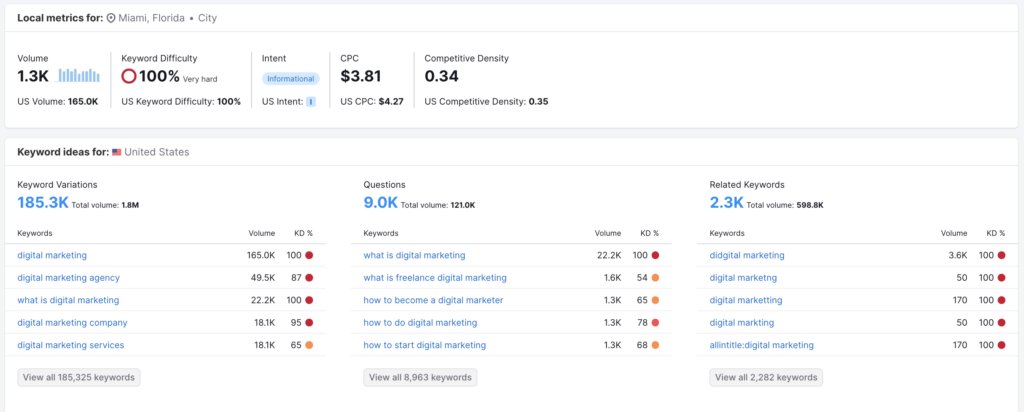In the vast expanse of the internet, where competition is fierce, relying solely on your competitors for SEO keyword research might be akin to navigating in the dark. We’re sharing a transformative approach that challenges the conventional wisdom. Let’s explore this strategy in greater detail, especially focusing on the crucial step of keyword clustering, as we make room for a more nuanced understanding of SEO success.
The Pitfalls of Competitor-Centric SEO Keyword Research
The internet is a crowded place, and blindly following your competitor’s top terms can lead to a myopic strategy. By fixating on their top 3 keywords with the most traffic, you might find yourself competing in an already saturated space. This approach not only targets highly competitive terms but also overlooks opportunities to rank for keywords your competitors might be missing out on.
Enter Keyword Clustering: A Game-Changing Approach
Keyword clustering is the key to breaking free from the shackles of competitor-centric research. Instead of relying on a handful of terms, this method empowers you to make informed decisions about a multitude of keywords. Using tools like SEMRush’s Keyword Overview Tool, you can break down your core terms and explore suggestions based on location and other relevant modifiers.
To illustrate the power of advanced keyword clustering, let’s delve into a practical example. Imagine you are aiming to establish dominance in the highly competitive field of “digital marketing.” Using SEMRush’s Keyword Overview tool, you initiate the process by breaking down this core term. However, the magic happens when you go beyond the generic and personalize it with additional modifiers like your location or specific industry niches:

The Heavy Lifting: Manual Analysis for Unparalleled Precision
Once you’ve identified your core terms, the real work begins. In our example of targeting “digital marketing,” you would manually analyze over 196,000 terms to identify those that align with your company’s intent. Your eyes become the discerning tool in this process, capable of nuanced judgment that surpasses any automated tool. Your SEO keyword research should be unique to your business.
Clustering Time: Streamlining Complexity for Strategic Advantage
After filtering through the extensive list of terms, it’s time to leverage a keyword clustering tool, such as SEMRush’s Keyword Manager. This tool categorizes your terms based on relevancy and overall intent. These clusters become the cornerstone of your content plan, guiding you on which terms to cover in your on-page content or blog posts.
A Proven Path to Success
The process may seem intricate, but the results speak for themselves. Going through this meticulous approach for over two years has resulted in consistent year-over-year growth. The carefully curated clusters, meticulously analyzed and strategically utilized, pave the way for unparalleled success in the dynamic realm of SEO.

Which Keyword Will You Be Clustering First?
As you embark on this revolutionary journey, the question arises: which keyword will you prioritize in your clustering strategy? Each cluster holds the potential to unlock new avenues for your brand, propelling you toward sustained growth and dominance in the digital landscape. The power to shape your SEO destiny lies in the precision of your keyword clustering decisions. Choose wisely, and watch your SEO strategy evolve into a force to be reckoned with.






